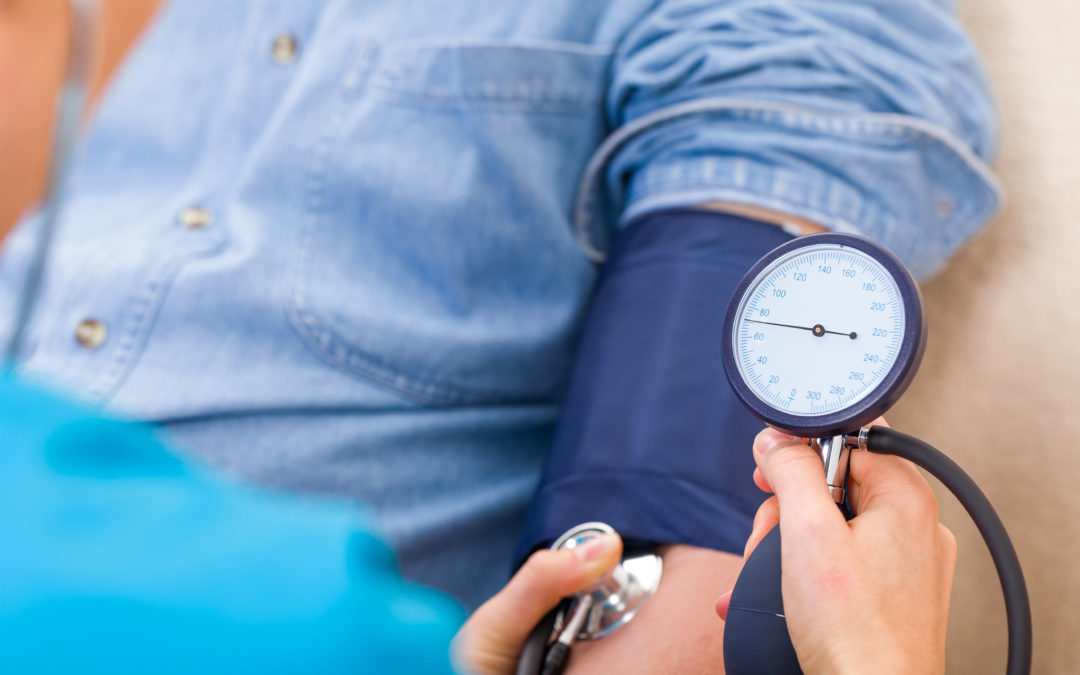Your blood pressure reads normally…until you’re sitting in the doctor’s office. Most of us have been there! All jokes aside, though, do you know what can cause your blood pressure to rise?
Whether you’ve actually been diagnosed with high blood pressure or it just spikes occasionally, there are certain triggers and lifestyle habits that can cause your blood pressure to go up. Why does that matter?
Blood pressure is defined as the force of your blood flowing through the arteries in the body. When your blood begins moving through the arteries at a higher pressure than normal, that’s considered high blood pressure, also called hypertension.
While a temporary spike in blood pressure every once in a while is normal, when it gets abnormally high or stays high for a length of time, it can be dangerous to your health. Uncontrolled hypertension increases your risk of many health conditions, including stroke, heart attack and heart disease.
Now that we’ve got the basics down, let’s dive in a little further.
What are the symptoms of high blood pressure?
Wondering what signs your body might exhibit if your blood pressure is too high? Well, that’s tricky. In many cases, high blood pressure shows no symptoms — that’s why it’s often called “a silent killer.”
But if your blood pressure elevates extremely high or you have high blood pressure that’s uncontrolled, you may experience symptoms like headache, shortness of breath or even nosebleeds.
Because the condition is largely silent, though, it’s important to have your blood pressure checked regularly at annual physicals and other medical checkups.
Who’s at risk of high blood pressure?
This one’s an easy one — everyone is at risk of high blood pressure. But there are certain risk factors that put you at a higher risk of developing HBP, or high blood pressure:
- Increased age
- African heritage
- Family history of the condition
- Excess weight
- A sedentary lifestyle
- Tobacco use
- A diet with too much sodium and/or too little potassium
- Excess stress
- Chronic conditions like diabetes, sleep apnea and kidney disease
While high blood pressure is typically diagnosed among adults, children can be affected, too.
When is high blood pressure diagnosed?
The standard for defining high blood pressure has actually changed in the last couple years. Blood pressure is now defined as:
- Normal for a reading less than 120/80 mmHg
- Elevated for a reading of 120–129/80 or less mmHg
- Stage 1 for a reading between 130–139/80–89 mmHg
- Stage 2 for a reading 140/90 mmHg or higher
The two numbers in each reading are the “systolic” and “diastolic” pressures, with systolic being the number on top.
What causes blood pressure to rise?
So…back to our original question — what can make your blood pressure spike or consistently be too high?
Any number of things, actually. Let’s take a look at a few:
- Salt. This one’s probably the most well-known cause of high blood pressure. Sodium makes your body hold on to water, which puts stress on your heart and the body’s blood vessels. That’s why experts recommend limiting sodium consumption to no more than 2,300 milligrams (one teaspoon) each day for most adults. Sodium isn’t just found in your salt shaker, either, so watch for hidden sodium in common foods, like processed foods, dairy and even bread.
- Weight gain. Your blood pressure rises as your weight does, so losing weight is one of the best ways to lower your risk of high blood pressure. Losing even 10 pounds can have a measurable impact on your blood pressure.
- Loneliness. This one may seem odd to you, but research has shown that loneliness can be as dangerous to your health as chronic health conditions in some cases. In fact, a study found that systolic blood pressure rose among research participants who were lonely.
- A lack of potassium. Potassium helps counter-balance sodium in the body. So, if you’re not getting enough potassium, your blood pressure may rise. Make sure you’re getting enough fruits and veggies—including but not limited to bananas—along with beans, low-fat dairy sources and fish.
- Decongestants. These common cold and flu meds can cause your blood pressure to rise, and they can be dangerous for those with high blood pressure. Talk with a doctor or pharmacist before taking one.
- Pain or stress. Anything that causes your nervous system to ramp up can cause a spike in blood pressure. This can include physical or mental pain — or excess stress. You may not be able to entirely avoid pain, but you can take steps to manage stress by getting plenty of sleep and exercise.
- Alcohol consumption. While moderate drinking won’t usually negatively impact your blood pressure, too much alcohol can. Having several drinks in one sitting can temporarily increase blood pressure, while repeatedly doing so can have a long-term impact on blood pressure.
Dr. Adrian Danchenko has more than 18 years experience as an invasive cardiologist. He recently relocated from Florida to Athens, Tennessee where he is providing cardiology care and follow-up.
Blood pressure is checked as part of an annual physical. When’s the last time you had a checkup? If it’s been a while, schedule one today! If you think it might be something more serious, book an appointment at The Erlanger Heart and Lung Institute.







